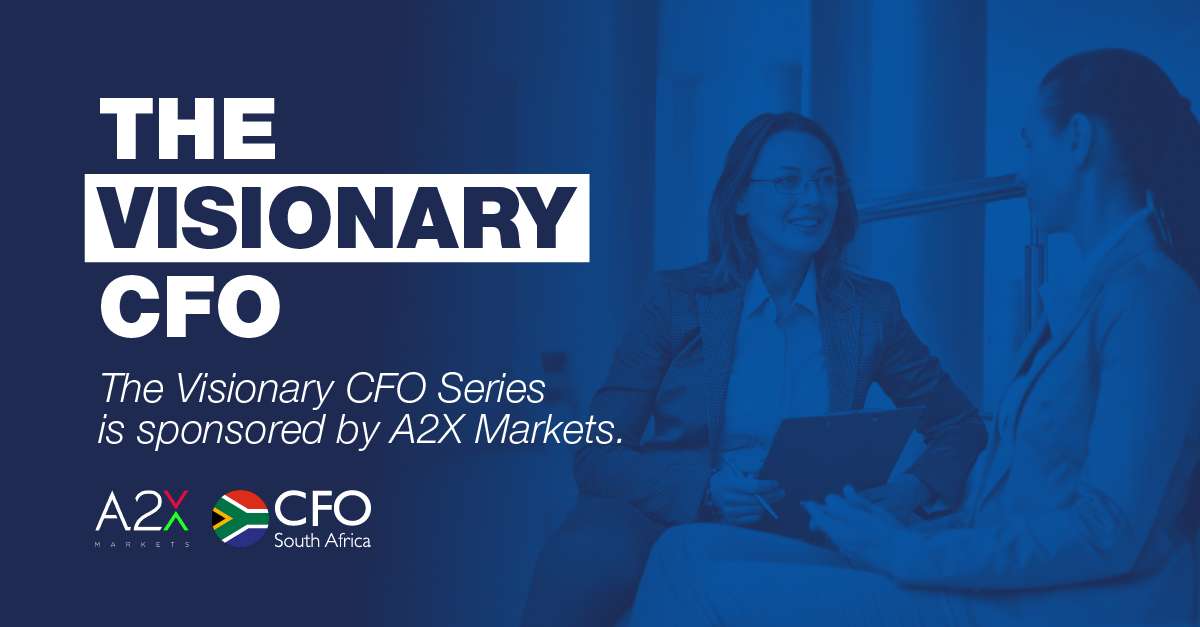Pieter de Wit explains how businesses can unlock the potential South Africa holds, and explains how they’ve been doing it at Afrimat, where he is the CFO.
Being a visionary means seeing beyond the bad to the good that can be – the opportunity. Afrimat CFO Pieter de Wit is one such visionary, believing that South Africa is a country with enormous potential. “To unlock this potential, we need to do three key things: turn Eskom and Transnet around, address the prevalence of crime in the country, and focus on the education of our youth,” he says.
He explains that, with loadshedding and logistical inefficiencies, the country’s fiscus is losing material revenue, which can go a long way towards addressing the current pressures on South Africa’s budget. “The country’s growth rate can improve significantly, and recent management changes at Eskom and Transnet are a positive step in the right direction.”
Pieter adds that the high levels of crime in South Africa are making people feel unsafe, and are resulting in a loss of critical skills. “Investing in quality education and vocational training across all levels is crucial to building a skilled workforce and fostering innovation.
“Initiatives like this strengthen the economy’s adaptability and competitiveness in the global market,” he says.
|
On the back of a successful Visionary CFO Series in 2021 and 2022, A2X has once again partnered with CFO South Africa to bring you a series of interviews highlighting South Africa’s best and brightest CFOs, their insights and challenges. Find out how they help lead some of South Africa’s most successful companies in this bi-weekly interview series. |
How Afrimat has embraced opportunity
Speaking from experience, Pieter refers to Afrimat’s economic strategy, which has helped it remain resilient and stable over the last few years of uncertainty. “Afrimat’s diversification strategy enables us to diversify across industries and sectors, which reduces the dependence on specific commodities or markets. This makes the business less vulnerable to external shocks and fluctuations,” he explains.
“We also maintain a strong balance sheet, with low debt levels,” he adds. “This enabled us to weather the Covid-19 pandemic, and be even stronger thereafter.” The company also emphasises achieving a proper return on its investments. “We constantly measure and evaluate ourselves against our own benchmarks.”
Pieter emphasises how important it is for businesses to focus on innovation in order to grow.
“You need to promote and allow innovation amongst employees. By doing this, as well as adopting new technologies, you can enhance efficiency, productivity and competitiveness.”
Afrimat underpins its economic strategy with strong execution and implementation skills, he adds.
In addition, he explains that, because Afrimat operates primarily in the diversified general mining space, its social licence to operate lies with the communities where it operates. “We take great care to listen to their needs and assist where we can in terms of employment and other community needs. We are steadfast in the notion that if we transfer skills, these can be retained and enhanced, providing communities and individuals with a sustainable path to earning income and wellbeing into the future.”
Partnership with government
Businesses play an important role in addressing societal changes, Pieter says, but acknowledges that they can’t do it alone. “There must be a close working relationship between all the stakeholders. At Afrimat, we maintain a good working relationship with government departments such as the Department of Mineral Resources and Energy.”
He explains that there are already various industry bodies that collaborate and interact with the government, including The Minerals Council of South Africa, which interacts with the government on behalf of the mining sector, ASPASA, which represents the aggregates industry, and the Ore Exporters Forum, which interacts with Transnet on behalf of the iron ore exporters.
“The collaboration between the government and these industry forums has already yielded good results and is an excellent way of driving positive change,” he adds, “especially when the challenges facing South Africa are collectively addressed.”
Pieter says businesses can assist the government in many ways, including with their investment and execution abilities.
“In our interactions through these forums, we are encouraged by the openness and willingness to improve – all for the betterment of South Africa.”
However, he adds that the government could be more open to private-sector partnerships.
What business can do
Pieter explains that businesses can create sustainable jobs, invest in communities, and provide environmental stewardship. “We can contribute by focusing on creating decent and sustainable jobs, offering skills training and promoting fair labour practices. This not only benefits employees, but also fosters a stable and productive workforce.”
He says supporting local communities through social investment initiatives, partnerships with NGOs, and infrastructure development can contribute to addressing inequality and fostering positive social change.
“In addition, businesses can also implement sustainable practices throughout operations and collaborate with stakeholders on environmental initiatives,” he says. “This can help address environmental challenges and create a more sustainable future for everyone.”
This Visionary CFO Series interview is sponsored by A2X.












